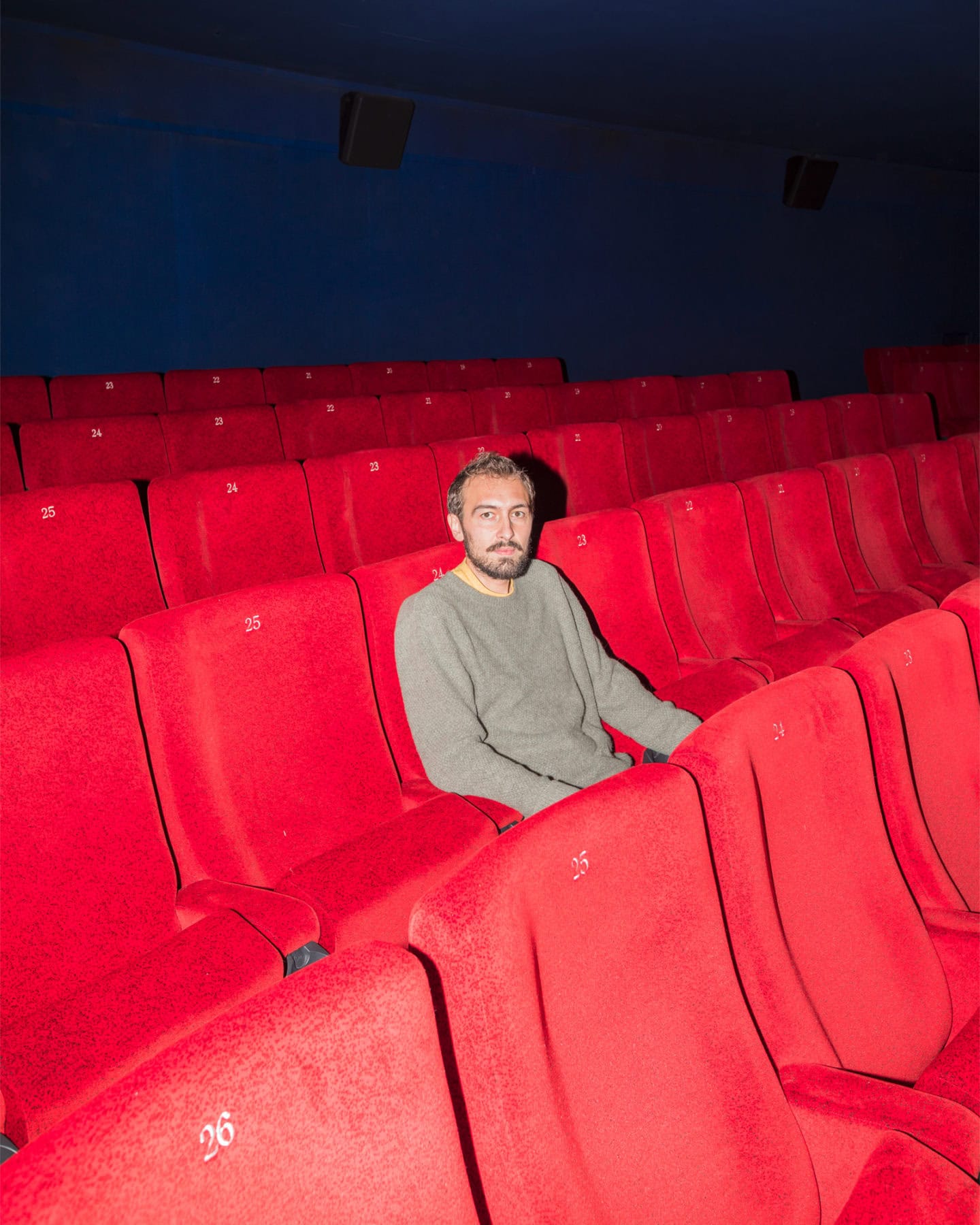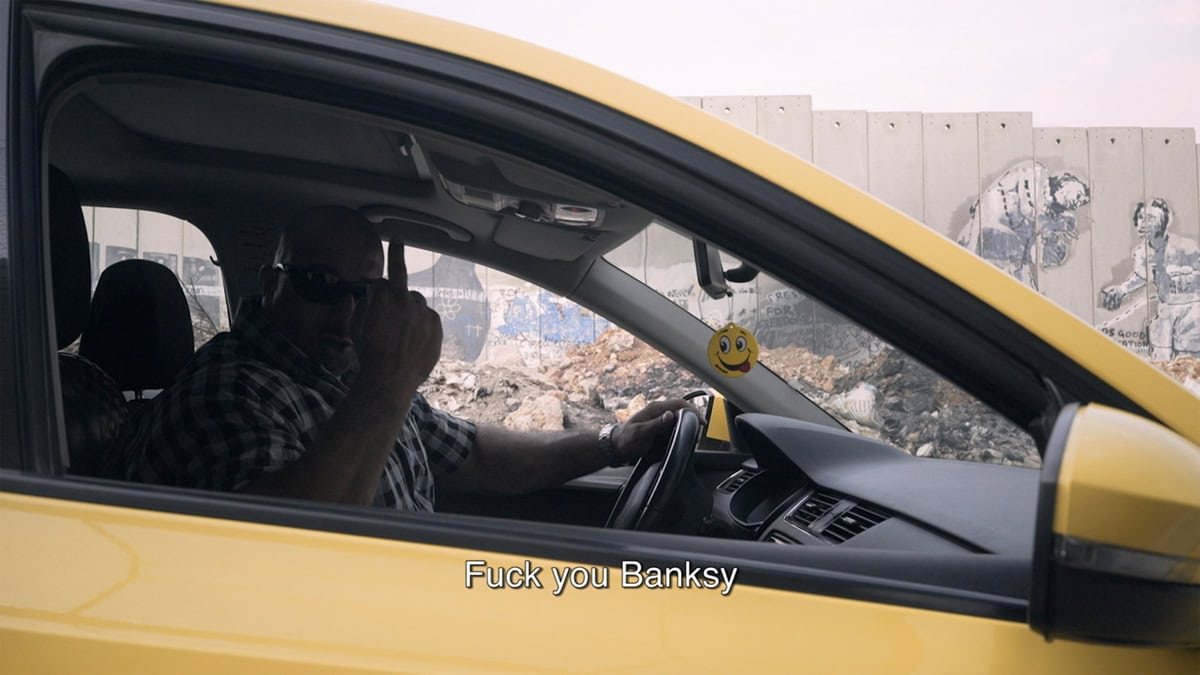Who is Marco Proserpio in “the man who stole banksy?” A storyteller? a provocateur? a documentarian?
I’m merely the eye behind the camera. It’s the viewers who need to bring their own brains.
With my film I ain’t trying to convince anyone to take sides, in fact I want viewers to make
their own mind.
Ok, thanks to you I’m at one degree of separation from a true legend: how did you manage to get in touch with Iggy Pop and get him into the team? how was to direct him? what does he think about this incredible story? about the Palestinian question? And about the sale of works literally detached from the walls and sold at super-exclusive auctions?
As it’s often the case abroad, and not so much in Italy, all we had to do was dropping an email to Iggy’s manager explaining the project in detail and sharing a rough cut of the film with them. A few hours later they replied and said he was into it, he would do it. Iggy entered the studio in Miami very well prepared, with a bunch of questions about the film and the script. We worked together in perfect harmony and I believe his voice was just the perfect choice for the film narration.
As for the other questions, what he thinks about Palestine and the art market, I can’t really speak for him.
[soliloquy slug=”proserpio”]
Now we come to the most present of the absents: Banksy has ever seen the documentary? if one day he should show up what would you ask him?
Ever since I started working on this film I used Banksy as a decoy. An excuse to talk about bigger issues. That’s why I never thought about getting in touch with him and that’s also the reason why many of his collaborators are in the film: they understood I wasn’t after some stupid gossip.
Has Banksy seen the documentary? Once the film was completed, we sent his manager a copy so yes, I suppose he’s seen it. And as I expected, I had zero feedback about, which apparently is the best feedback one can get from him.
You have been in Bethlehem several times (one of them even in one of the many hot periods from that part of the wall), how did the Palestinian daily drama affect the documentary?
It’s such a brutal context it obviously ended up influencing my film quite a lot. I mean, imagine living with a wall built around your hometown and stopping you from moving freely. That’s why most of the images from Palestine focus on this situation, on this suffering. We decided to leave this context in the background and to talk about a slightly different story from the norm, portraying Palestinians as human being and not just as victims. But as I said, it’s such a brutal context it’s inevitable to make it part of our story, of our film.
We visited your social profiles so we investigated your public life. We note that you publish very little and that your way of making news is very modest. We believe it is very consistent with the theme of the film and of the link with street artists whose identity is very often unknown. Is all this wanted? Apply this modesty and privacy also to your private image?
I think it’s just a matter of personality. For years I hid my name under the pseudonym Steven Jonger, a Danish artist I made up. I am not a privacy warrior or something like that though. Everybody should be free to use the type of communication they prefer, whether it’s filling up their social profiles with crap of shutting up and simply do stuff.
Should I try and push my brand a bit more in order to have more followers? Would this change the nature or the quality of my work? Really?
Last question: what does Walid think of the film?
Walid is very happy about the final result. In the course of these last six years we talked about this story quite a few times, so I guess he was somehow prepared when he finally got to watch it.

